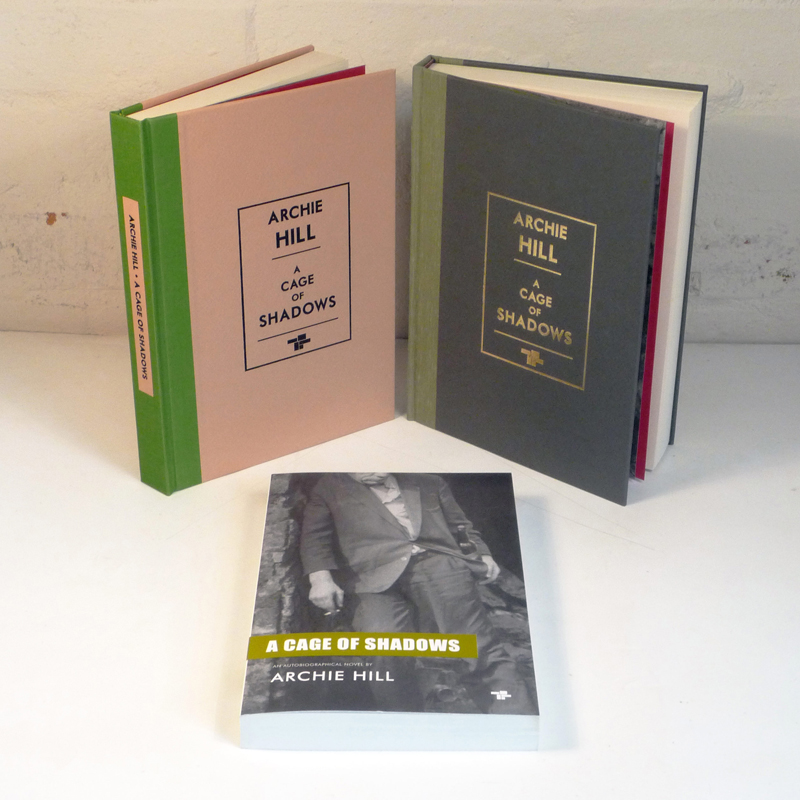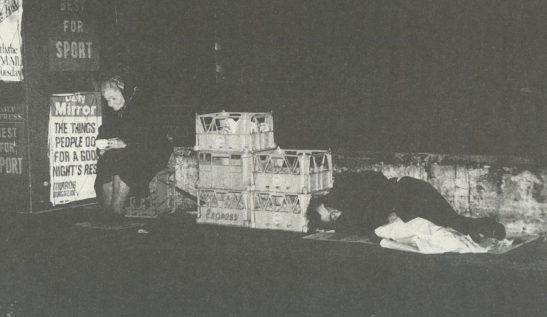It’s the men of the Black Country who ever held me in bond, the native born. Between them, in a sort of composite form, they provided me with a substitute father. The simplicity of them, the strength, and sincerity. And their pride of self in personal craftmanship which nothing, not even the dark days of depression, ever seemed to daunt for long.
Archie Hill was born into a working-class family in the Black Country in 1928. He was the second eldest of nine children and his father was a violent, drunken miner, more often unemployed than not. Hill’s mother, whom he presents as a somewhat cold and distant figure in this memoir, was serially pregnant throughout Hill’s childhood.
A Cage of Shadows is the first of five autobiographical works by Archie Hill and covers the period from his childhood through to the 1950s. It is in effect two books: the first covers his early years of poverty and hardship in the economically-depressed Black Country, while the second describes his life as a young adult. Hill left home to join the military police at the outbreak of the Second World War and, after military service, joined the civilian police. But his drinking, which had always been heavy, led to his dismissal from the force and into a downward spiral of alcoholism.
The two parts of the book differ stylistically too. Hill describes his deprived, brutal childhood simply and without self-pity and puts the facts before the reader in the clear, frank manner of English social realism. The second section of the book, however, is a meandering psychological journey through the mind of a chronic alcoholic. Hill drinks, lies, cheats and fights his way into a vortex of disintegration which leads into time spent in a psychiatric hospital and prison and eventually to life on the streets and bomb-sites of 1950s London. The epilogue of this book charts Hill’s faltering climb back up from the edge of the abyss.
A gifted artist, photographer and writer, Archie Hill enjoyed some success as a writer and broadcaster in the 1970s and early 1980s. However, following his death by suicide in 1986, his books gradually drifted out of fashion and, by the turn of the millennium, they were all out of print. Tangerine Press, therefore, are to be congratulated for republishing A Cage of Shadows in 2017. What’s more, this is the full, original text. The 1973 version was withdrawn and pulped following a libel action by Hill’s mother and the revised second edition was heavily edited to remove most references to her.
Hill’s childhood was one of acute poverty and neglect. Home was overcrowded, filthy and comfortless and the whole family lived under the shadow of his father’s volcanic temper.
Then the bits of furniture would get smashed, the table tipped over, and there’d be a herd of brothers and sisters wailing at the head of the stairs. And I’d look at my gargoyle parents, at the nappies spilled over the hearth, at the broken furniture and cardboard stuck in broken window panes to keep the draught out, the dirty floor-quarries, and think to myself quite simply and cleanly ‘Fuck everything and everybody’.
Women seem to play no more than a peripheral role in Hill’s world, and most of those he mentions are described as stereotypes rather than fully-rounded characters. Reading A Cage of Shadows, one is left to wonder about these many untold female narratives, particularly the story of Hill’s mother’s life and how she came to end up as the cold, feckless character he describes. But he focuses lovingly on a handful of male figures that loom over his formative years, as if to replace the father he longed for rather than the one he suffered. There is Pope Tolley, his father’s friend and a two-fisted mountain of a man. When Archie is continually and unfairly picked on by the headmaster at his school it is Pope and not his own father who marches down to the school and warns off his persecutor. Rough-mannered, kind-hearted Pope Tolley, who goes off to Spain to fight with the International Brigade and later dies on the beach at Dunkirk.
Other father substitutes figure in Hill’s life too: Old Billy, the glassblower who creates intricate glass figures at his work bench in his shed and shares his skills with young Archie. He remembers from his early years too his Welsh grandfather, a kind, gentle old man. Then there is Konk, the old poacher and knowledgeable countryman, who teaches Archie how to catch game and instils in him a love of the Staffordshire woods and hills. Konk, as an inner voice in Hill’s head, features in his later meditative work, The Second Meadow.
A turning point in Hill’s life comes when in prison he meets Klaus Fuchs, or ‘Doc’ as he was known to his fellow inmates, the nuclear physicist and convicted spy. Fuchs drip feeds into Hill’s consciousness a love of music, literature and social justice. But the change is not immediate, after prison Hill sinks even lower and ends up as a homeless meths-drinker living on London’s streets. But gradually something from his talks with Fuchs germinates and grows inside Hill. The process is slow and painful, but over a period of several years he pulls himself back from the brink of alcoholic oblivion to a comfortable life with a wife, son and a moderately successful career as a journalist and writer. He evens reaches a kind of forgiveness, though not love, for his father.
A Cage of Shadows by Archie Hill is published by Tangerine Press
£12 plus shipping. 304 pages. Format approx. 6″/150mm wide x 9″/230mm tall. Cover image by the author retrieved from the archives; three b&w examples of Mr Hill’s photography included in the book itself; acid-free text paper. ISBN: 978-1-910691-11-3


